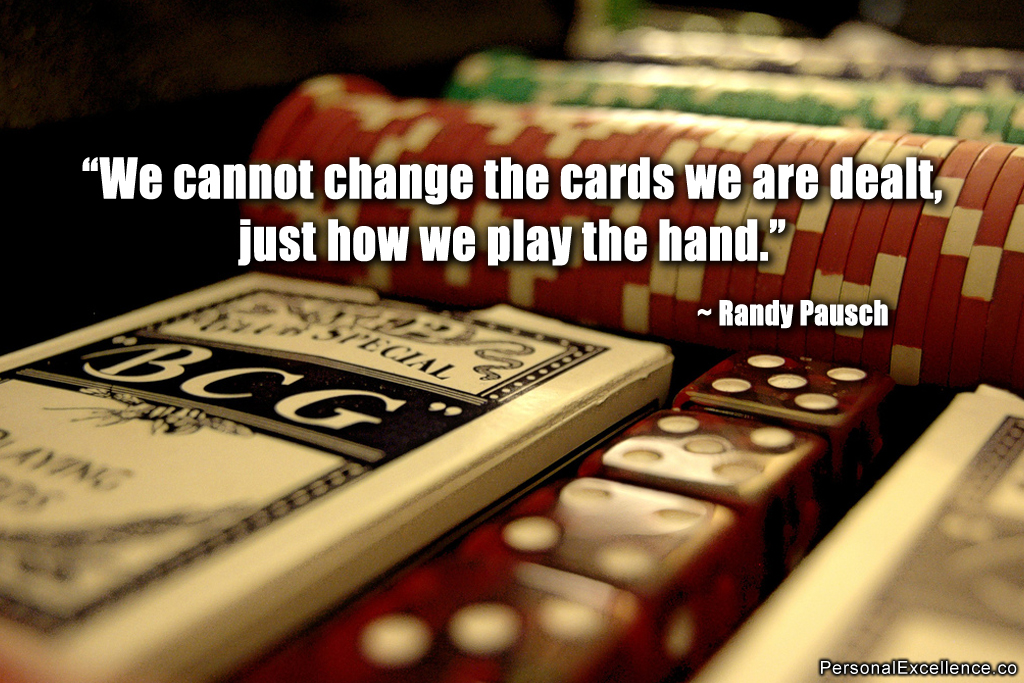
(Image: D Sharon Pruitt)
Self-Sabotage
Last week, I was reading this Forbes article about why there aren’t more women on boards. This snippet caught my eye:
When we meet the Maria Klawes of the world – women who rise to the very top of their professions – we too often convince ourselves that we’ve got to be world-changing superstars to become GC of a Fortune 500 firm, CEO of a top tech firm in the Silicon Valley, or Managing Partner of an AmLaw 10 firm.
As a Forbes blogger, I’ve called dozens of men and women for comment on newsworthy events within their expertise. More than half of the ridiculously highly qualified women I spoke with told me they weren’t expert enough to comment.
No man has ever said that to me even when he was far less qualified than the women who’d demurred on the ground that they were not good enough.
The interesting thing is that the people who were approached felt that they were not expert enough to comment —despite being handpicked by the interviewer herself! Even though the article is referring to women selling themselves short, I see self-sabotage as a problem that happens to everyone, not just women.
Imagine you are scouted by the hiring manager of a highly prestigious company. Believing that you would be a good fit, she asks you to come down to her office for an interview. Not confident of your abilities, you tell the manager that you don’t have the right skills and turn her down, even though you secretly want the job.
Isn’t that a waste? I mean, if there’s a hiring manager who tells you that you have what it takes, shouldn’t you be ecstatic about the opportunity? Wouldn’t you want to jump at this once-in-a-lifetime opportunity?
This example may not seem like something most would do. Most of you probably think that you would never do that. Yet, many of us exhibit self-sabotaging behavior like this in our daily life, without realizing it.
My Experience with Self-Sabotage
For a good period of time, I believed that I should never write an article or a book unless I was able to make it the most comprehensive article/book on the topic ever. Some call this perfectionism; others call it neuroticism.
While this thinking came from a good place (I wanted the best for others), it became self-destructive. I had these nuggets of insights that would go unwritten because I didn’t feel ready to cover the topics. For example, if I had an insight to address envy, I would hold off writing about it because it was just one insight and not the big picture. My rationale was that these insights were minute and not substantial enough (or rather, not good enough) to be published as articles on PE.
I didn’t realize that writing about the individual insights (without covering the entire topic) could provide great value to others too. It was silly because I lost dozens of article opportunities this way. These articles could have positively impacted hundreds of thousands of people out there because of PE’s reach and the permanent nature of the articles. A definite waste.
What changed was when I noticed how people would be positively impacted by the things I shared during simple conversations or email exchanges. These were things I had no problems sharing in daily banter but had issues publishing on PE. I couldn’t help but wonder: If my casual thoughts and insights were helping these people, who was I to assume that they wouldn’t be helpful to others out there as well?
Clearly, my “must be perfect,” “must be complete” approach was limiting me. It stood in my way of helping others, when helping others was the reason why I even started PE to begin with. Not only was I doing others a disservice, I was also doing myself a disservice.
Realizing this helped me to focus on the bigger picture – my passion to help other people grow. Since then, I make a point to cross-check my beliefs regularly and ensure they support my end objective. If I ever have fears, insecurities, or personal hang-ups that stand in my way of serving others, that’s my cue to reflect on those beliefs and break them.
Another Example: Rejecting an Opportunity for Exposure
Some of you may recall the Successful Businesses Interview Series I did in 2011, during the Million Dollar Challenge. I created the series as a way to inspire you guys with stories of successful entrepreneurs and give you insight into their success strategies, so you may apply them to your (future) businesses.
I reached out to the owners of highly successful businesses, from the likes of Groupon to CD Baby (multi-million dollar music distributor), most of whom readily took up the offer. A few rejected or didn’t respond, presumably because they had other things to do, which was fine. That simply meant our needs were not compatible and it was better to let them go.
What struck me was this response I got from a business owner. I was extremely picky with the businesses I selected because I wanted them to (a) be respectable businesses I would endorse and (b) have attained a certain level of success, since the point of the series was to share success stories. Whichever businesses I reached out to, I had already screened them and determined them to be great case study examples.
This particular business was a budding enterprise with a great message. It had not been around for very long but it seemed to be growing with an engaged customer base. I liked what it had to offer and thought it would be a great addition to the case study line-up. Also, I thought it’d be a great opportunity to help drive awareness of that business and perhaps attract new, potential customers for it in the process.
However, when I reached out to the owner, she declined because she thought her business was not established enough. While I accepted her response, I couldn’t help but think it was such a pity… not for me or the interview series, but for her. I could understand if the person had said she was not free, or she didn’t think the interview would be useful, or because she just didn’t want to, but to decline an interview (free exposure for her business no less) because she thought her business wasn’t established enough – as a business owner myself, I felt that was self-sabotage at its finest.
The Insidious Mind Traps of a Self-Sabotager
Turning this back to you, have there been times when you rejected opportunities because you thought you were not qualified enough? Times when you jeopardized your chances for success because of your self-limiting beliefs? Times when you stepped on your own foot just so you wouldn’t be able to take a few steps forward?
In those incidences, why did you do that?
Having coached many different clients, trained hundreds of people at workshops and oversaw hundreds to thousands of participants through the live challenges at PE, I see self-sabotage at work every single time.
For example, someone who deliberately dumbs down his achievements in his resume because he doesn’t want to appear pompous (a self-limiting belief). Someone who works hard at losing weight, and then gains it all back with a series of poor eating habits. An aspiring video blogger who refuses to record videos because she’s waiting for a million things to be in place first. A great artist who sticks to drawing as a hobby, because he feels no one will be interested in what he has to share.
After examining many people’s self-sabotaging behaviors, I have found two common trends.
Trend #1: Every self-sabotaging behavior is always justified by a reason
Maybe you are a writer, and you refuse to start writing your new book because you want to feel inspired, and excited, and relaxed first. Maybe you want to lose weight, but you keep padding your diet with junk food because your family eats junk food and you have no other option (is that true though?). Maybe you want to create a video channel and share your knowledge with the world, but you keep putting it off because you want to have the right equipment, right set-up, right getup, and right everything in place first (but why?).
For every self-sabotage, there will always be at least one reason backing it up, which is in turn supported by multiple other reasons. These justifications encapsulate that (sabotaging) behavior and protect it from being shaken by other opinions, be it yours or other people’s. Addressing that behavior then becomes no different from getting through the labyrinth of self-justifications in your mind. Consider it as solving a puzzle, except in the mind.
Trend #2: We are the strongest justifiers of our self-sabotage
For the longest time ever, I held back on outsourcing. I knew it was something I would have to do at some point as my business expanded, just that I never thought I was truly ready to do it. “Now is just not the time yet. I’ll definitely do this next time,” was what I kept telling myself.
The problem was, it never seemed like the right time. I had about a zillion reasons why I shouldn’t outsource just yet, from “It’s so much faster to just do this myself,” to “I want to learn the ropes first so I can handle things if they ever go wrong,” to “Hiring people costs money which can be spent on other things,” to “I don’t know any good people I can rely on,” to “It takes time to find good people.”
When I finally loosened the reins and outsourced various aspects of my day-to-day work (since end of last year), I realized I was stepping on my foot the whole time. I should have outsourced long, long ago, because it made me so much more effective. For the first time in a long while, I was finally spending my time on the core of my passion – content creation. Not administration, graphic editing, day-to-day stuff, or stuff unrelated to the core of my work.
This episode made me realize how elusive self-justification and self-sabotage can be. A lot of times, we may go all out to explain our actions to other people. We may even be able to convince others that what we are doing is really how things should be.
Yet, self-sabotage is tricky. It’s elusive. It’s insidious. It can masquerade something as righteous and good when really, it’s self-defeating and bad. If you want to overcome self-sabotaging behavior, you have to be the one to step in and say, “Hey, this isn’t right.” You have to be the one to do this, because only you know the labyrinths of your mind. Other people can tell you what they think, but until you acknowledge that, your self-sabotage will keep looping itself over, and over, and over, again.
How to Tackle Self-Sabotage
What should you do to ensure you are not binding yourself with self-sabotage?
1) Be Your Own Gatekeeper
To correct self-sabotage, you have to be the gatekeeper of your thoughts, actions, and decisions (or non-actions, in some cases).
This means with everything you do, ask yourself: “Will this help me with my goals? Am I limiting myself in any way?” Be conscious about your thoughts, actions, and decisions, because you are the one who is going to live with them.
This doesn’t mean that you should be a devil’s advocate. No, not at all. A devil’s advocate is someone who takes the opposing stance for the sake of argument. Your role here is not to oppose but to examine the validity of what you do (or don’t do). You don’t want to undermine yourself. You do, however, want to empower yourself. Being more conscious and self-reflective is the key to that.
After realizing some of my past behaviors were in fact self-sabotaging, today I’m careful not step on my own foot. For example, I have learned to share ideas even if they may not be complete, as long as they provide value to others. I’ve also learned to be better at outsourcing. I’m constantly evaluating my decisions to ensure that I’m not jeopardizing myself. I have found that I tend to overcomplicate situations and make things difficult for myself, so that’s something I’ve been working on. Read: The Superstar Effect: What To Do When You Have Too Many Ideas
2) Examine Your Thoughts… and Change Them if They Are Self-Sabotaging
As your gatekeeper, examine the thoughts that run through your mind daily. Do you carry thoughts that sabotage your intentions?
Let’s say you want to record videos and put them up on Youtube. However, you are afraid to do it because you don’t think your videos are good enough. You also don’t think anyone will care to view your videos. Those are two self-sabotaging thoughts right there.
Or let’s say you want to work at Forbes as a news writer. However, you hold back from submitting your resume as you gather they probably have lots of people applying for the job. I probably won’t stand a chance. Why submit if I’m not going to get it? you think. That’s two more self-sabotaging thoughts.
Self-sabotaging thoughts are like invisible ropes that hold you back from moving forward. You can’t see them. But you can feel them. To stop sabotaging yourself, you need to remove these self-sabotaging thoughts. Delete them. In their place, instill new, empowering thoughts that will push you forward.
Refer to Days 26-27 of Be a Better Me in 30 Days for more on limiting thoughts and how to replace them with empowering ones.
3) Examine Your Behavior for Self-Sabotaging Actions
Many of our behaviors are things we do on auto-pilot, guided by our undercurrent beliefs, habits, and past practices. As your gatekeeper, it is your role to cross-check your normal behavior for any self-sabotaging action.
For example, I have a friend who runs an up-and-coming business. When she started two years ago, she was heavily involved in the back-end of her business, such as product creation, quality testing, and talking to suppliers. If there was anything that required her to be in the “limelight” (so to speak), such as being in interviews, presenting at business conferences, or being a part of large social events, she would readily shy away from them. Because of her introverted nature, she preferred to do things from behind-the-scenes.
However, as her business grew, she realized that her natural disposition towards such scenarios was a self-sabotaging behavior that prevented her business from growing. By turning down speaking invitations, she was turning down networking opportunities that might spring into new business opportunities. By shying away from interviews, she was saying no to free business exposure. By staying behind the scenes, she was limiting the upward growth of her business.
Upon realizing this, she switched to a more liberal, proactive approach. Today, she readily takes up opportunities for exposure, socializing, and business networking. This is subsequently helping her business to grow in a new direction.
I’m not saying that all introverts have to practice being social. That’s for each individual to decide. All I’m saying is that what you see as natural character traits, habits, and reactions may well be self-sabotaging you without you realizing it. It takes a conscious person to take a step back, evaluate his/her behavior, and recognize, “Hey, maybe there’s more to this than meets the eye.”
Consider your usual behavior and ask yourself these questions:
- Does this behavior help me with my goal? Or does this hold me back?
- If it doesn’t help me, what is the approach that will help me then?
- How can I modify my current behavior to the above?
4) Understand the Reasons You Self-Sabotage (and Let Go of Them)
There are many reasons why we would want to sabotage ourselves. Maybe we are afraid of success. Maybe we are scared that we wouldn’t be able to handle it when we make it. Maybe we are scared that there will be nothing left to do when we make it. Maybe we just want to keep things simple. Maybe we like to make things complicated. Maybe misery loves company and we want to make ourselves miserable.
Without understanding your reasons for self-sabotage, your self-sabotaging inclinations will keep returning even after you address your self-sabotaging thoughts and actions.
Consider this scenario. Peter wants to work as games developer with Square Enix (a video game publisher). Initially he self-sabotages by convincing himself that he should not apply, since Square is such a renowned company. After overcoming his self-sabotaging thought patterns, he sends in his application and subsequently secures an interview, much to his surprise. However, during the interview, he self-sabotages himself by committing several interview blunders. In the end, he fails to get the job.
Here, Peter self-sabotages himself because he doesn’t find himself worthy of that opportunity. Hence, he does one thing after another to get in his way of success. It’s his way of convincing himself that he truly does not have what it takes, when the only issue in question is his low self-perception. (Read: How To Be The Most Confident Person In The World)
For me, I used to sabotage myself in the area of writing and sharing because I was afraid to write things that wouldn’t be useful to other people. With regards to holding back from outsourcing, I sabotaged myself there because doing menial tasks, being occupied with them, and completing them in a regular fashion was my way of making myself feel useful and productive. Of course, these were just self-limiting beliefs. (See Point #2.) Recognizing these reasons and letting go of them subsequently eliminated the self-sabotaging behavior.
Ending the Cycle of Self-Sabotage
Practicing the four steps above on a regular basis, especially the fourth step, will be instrumental in weeding out self-sabotage.
For the chronic self-sabotager (like someone who procrastinates heavily, experiences frequent laziness), it may take a while before you can act in a way that’s most aligned with your intentions and devoid of self-sabotaging consequences. That’s alright. What you need to do is to start practicing consciousness in your day-to-day thoughts and actions, via what I have shared in this article. Soon you’ll find your behavior more congruent with your deepest wishes, and less self-conflicting.
I hope you found this piece useful for you. Pass this article along to a friend or family member who may be a self-sabotager at heart.
Check out:









 Thanks for reading. If you like my free articles, join my private email list and get my latest updates and articles sent right to your inbox.
Thanks for reading. If you like my free articles, join my private email list and get my latest updates and articles sent right to your inbox.